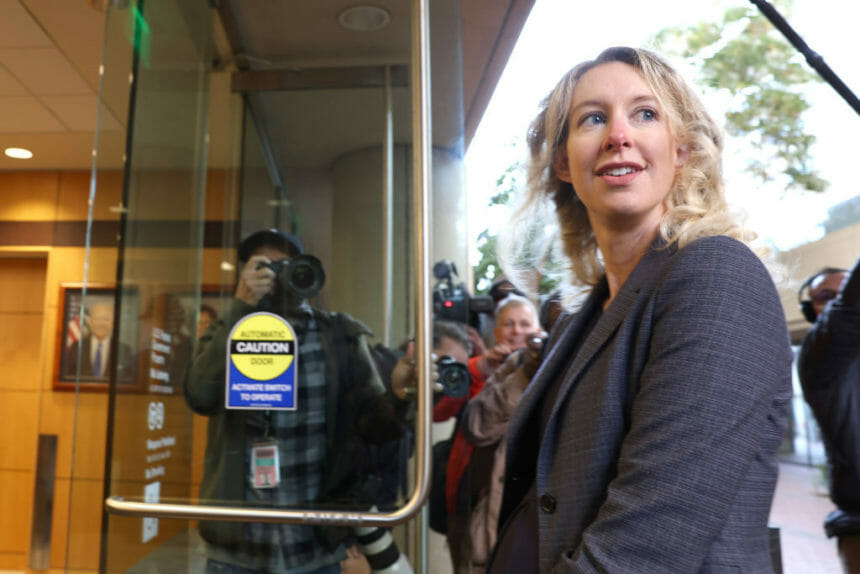Elizabeth Holmes, who was convicted 10 months ago of defrauding investors in the blood-testing startup Theranos, was sentenced Friday to 11 years and two months in prison followed by three years of supervised release.
Judge Edward Davila, who also presided over Holmes’ four-year criminal fraud case and her four-month trial in U.S. District Court in San Jose, said the case was “troubling on so many levels,” as he handed down the sentence.
“Failure is normal. But failure by fraud is not OK,” he said.
Holmes tried, through her now-shuttered company, to fleece investors out of more than $144 million by making deceptive claims about Theranos’ technology, specifically that its “Edison” device could conduct a full range of tests using just a few drops of blood.
In addition to the length of the term handed down by Davila, one point of contention involved whether Holmes would be required to report to jail the same day or be allowed to remain out of prison during any appeal. Pregnant again and with a 1-year-old son, she was expected to try to delay her imprisonment, legal experts said.
Her sentence is set to begin in April of 2023.
Federal prosecutors had asked for a 15-year term along with an $800 million fine, painting her as an unrepentant liar, despite crimes that were “among the most substantial white collar offenses Silicon Valley or any other District has seen.”
Her fraud was so “spectacularly successful,” per court papers filed this week, that she was “one of the richest and most celebrated woman leaders in our [country’s] history,” with the CEO’s shares in Theranos peaking at more than $4 billion in value.
Holmes’ lawyers had countered that she should receive no prison time, as she “never cashed out, and she went down with the ship when the company failed.” Moreover, given the “dehumanizingly cruel” media coverage she has suffered, the defense had recommended 18 months of home confinement or, at most, 18 months incarceration, with a requirement of community service. Holmes’ sentencing memo also noted that she lacks assets to pay any restitution.
An investigation by The Wall Street Journal in 2015 found that most of the tests Theranos claimed to perform on its analyzer were actually being performed by standard blood-testing machines. In 2018, the Justice Department charged Holmes and her next-in-command, Ramesh “Sunny” Balwani, with a 12-count indictment (one count was later dropped).
Last January, Holmes was convicted of four charges, including fraud and conspiracy counts. She was acquitted on another four counts, with the jury deadlocking on the other three. Her trial, which took place over a 15-week span in federal court in San Jose, became a referendum on Silicon Valley’s fake-it-until-you-make-it culture – and a cautionary tale for healthcare marketers.
In turn, her sentence may be interpreted as a deterrent against misrepresenting a company’s capabilities, the risk of which is all too common in the high-flying world of tech startups. With entrepreneurs less and less in need of a big agency, that risk has grown.
“Much of building audience and consumer demand is through owned social channels,” Stan Fiorito, a former group account director for Theranos’ one-time AOR, TBWA\Chiat\Day, told MM+M earlier this year. “So there’s less of a need for a partner. That might be scary because there is less of a chance for checks and balances by an outside agent, if you will, to help steer a brand.”
In Balwani’s four-day trial, which followed Holmes’, the former chief operating officer was found guilty by a jury of 12 charges of federal wire fraud and conspiracy to commit wire fraud, and of defrauding both investors and patients. His sentencing is slated for Dec. 7. Balwani faces up to 20 years in prison along with fines and restitution.
The defendants were tried separately, as Holmes’ lawyers claimed that she suffered sexual and emotional abuse at the hands of the older Balwani while the two were running Theranos. Holmes maintained that he exerted control over her activities and even forced her into sex, allegations which he strongly denied, and often belittled and castigated her.







